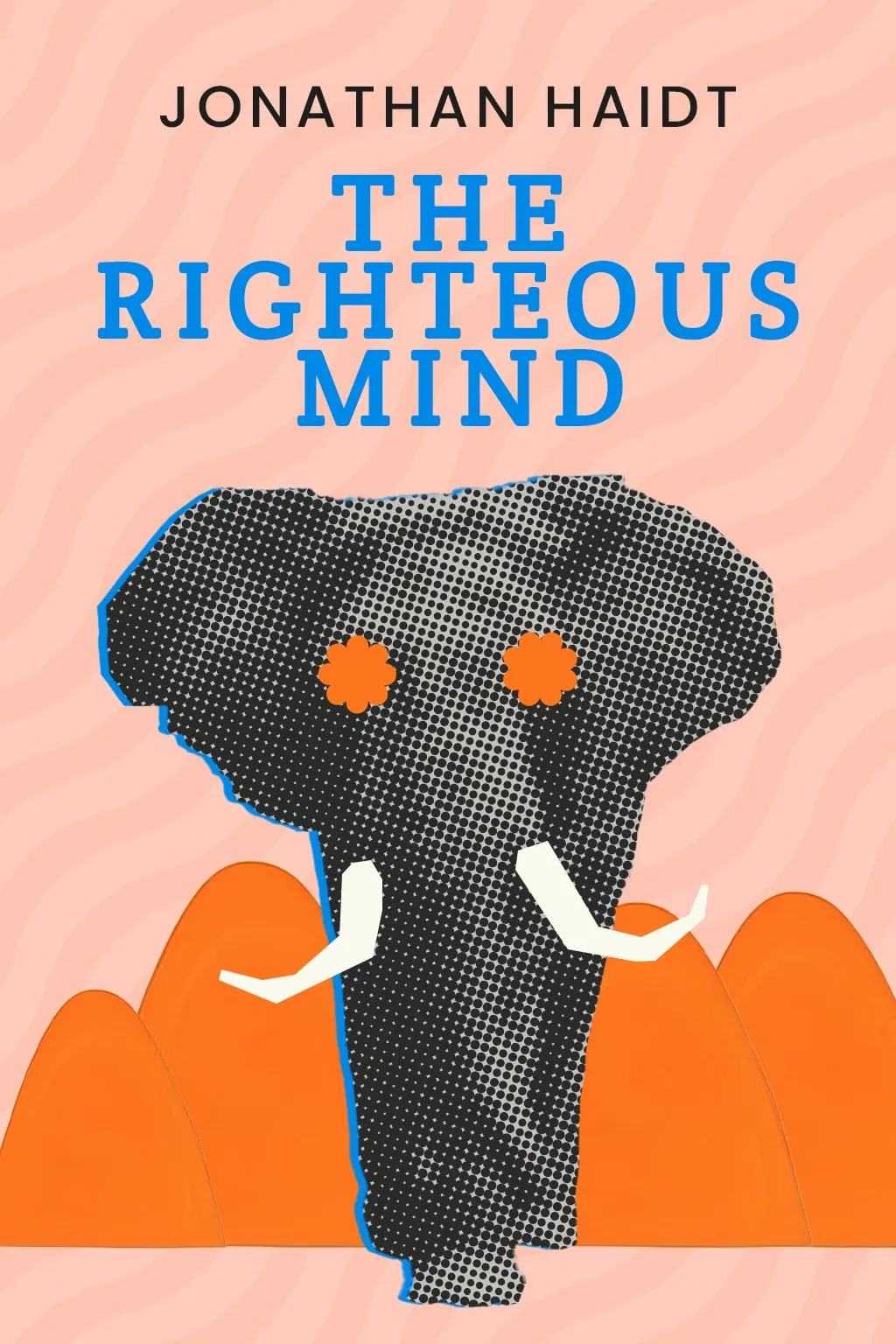

The Righteous Mind
Psychology
Jonathan Haidt
Episodes
Summary
In "The Righteous Mind," Jonathan Haidt embarks on an ambitious exploration of human morality, meticulously dissecting its roots, functions, and profound implications for societal cohesion and conflict. Haidt, employing a sophisticated blend of moral psychology, anthropology, and evolutionary theory, posits that morality is not a monolithic entity governed by rational deliberation, but rather a complex, multifaceted construct shaped by intuition, emotion, and cultural evolution. The central thesis underscores that moral reasoning is predominantly a post-hoc rationalization, a nimble rider attempting to steer an elephantine intuition that has already stampeded toward a judgment.
Haidt introduces Moral Foundations Theory as a crucial framework for understanding the diversity of moral perspectives. This theory identifies six fundamental moral foundations: care, fairness, loyalty, authority, sanctity, and liberty. These foundations, analogous to taste receptors discerning varied flavors, are emphasized to differing degrees across individuals and cultures, thereby shaping distinct moral palates. Liberals, for example, tend to prioritize care and fairness, emphasizing harm reduction and egalitarian principles in their moral judgments. Conservatives, contrastingly, engage a broader spectrum of these foundations, incorporating loyalty, authority, and sanctity alongside care and fairness, resulting in a more traditional and communitarian moral outlook.
A critical insight of "The Righteous Mind" is the concept of morality as both a binding and blinding force. Morality, Haidt argues, serves as the social fabric that binds individuals into cohesive groups, fostering cooperation and shared identity. However, this very binding mechanism simultaneously blinds individuals to the validity of alternative moral perspectives, creating divisions and hindering cross-cultural understanding. This “binding and blinding” nature of morality is particularly evident in the political realm, where differing moral priorities fuel partisan animosity and ideological entrenchment.
Delving deeper into the psychological architecture of moral judgment, Haidt presents the compelling metaphor of the "hive switch." This metaphorical switch represents the human capacity to transcend individual self-interest and embrace a collective identity, a phenomenon often triggered by shared rituals, heightened emotions, and collective goals. Religions, in Haidt’s analysis, function as "team sports," harnessing this hive switch to forge strong communal bonds, reinforce moral norms, and promote cooperative behavior among adherents. However, this very capacity for group cohesion can also exacerbate intergroup conflict, as loyalty to one's "team" can breed animosity toward outsiders.
Ultimately, "The Righteous Mind" advocates for a more nuanced and empathetic understanding of moral diversity. By acknowledging that individuals and groups operate from fundamentally different moral frameworks, often rooted in intuitive rather than rational processes, Haidt encourages a more constructive and compassionate approach to political and social dialogue. Rather than dismissing opposing viewpoints as irrational or immoral, he urges us to engage with them in a spirit of intellectual humility, seeking to understand the underlying moral intuitions that shape them. Such an approach offers the potential to bridge ideological divides, foster genuine cooperation, and build a more inclusive and harmonious society. The paramount takeaway lies in recognizing the inherent "righteousness" in diverse moral perspectives, understanding how these perspectives shape our worldviews, and leveraging this knowledge to foster genuine understanding and empathy across ideological fault lines.
Popular Quotes
- Please, we can get along here. We all can get along. I mean, we’re all stuck here for a while. Let’s try to work it out.
- My goal in this book is to drain some of the heat, anger, and divisiveness out of these topics and replace them with awe, wonder, and curiosity.
- It is the realization that we are all self-righteous hypocrites: Why do you see the speck in your neighbor’s eye, but do not notice the log in your own eye?
- Morality binds and blinds.
Edition Info
Paperback
Published by Vintage
2013-02-12 | 528 Pages | 5.2 x 1.2 x 8 inches | ISBN 978-0307455772










